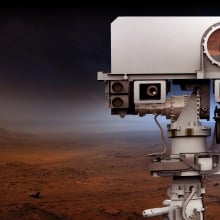In the 1800s, pioneering scientists foresaw how carbon in the air could warm Earth. By 1938, English engineer Guy Callendar had linked rising atmospheric carbon dioxide to global warming.
Now in 2024 — with atmospheric CO2 at its highest levels in at least 800,000 years — NASA found July 22 was the hottest day observed in the modern satellite record. With the use of spacecraft and modern instrumentation, NASA can run a relatively quick analysis of global temperatures. This scorching day (amid a scorching two weeks) demonstrates a "long-term warming trend driven by human activities, primarily the emission of greenhouse gases," NASA said in a statement.
"In a year that has been the hottest on record to date, these past two weeks have been particularly brutal," the space agency's administrator Bill Nelson said, noting the agency uses over two dozen Earth-observing satellites to collect climate data.
"Oppressive heat" recently blanketed the Western U.S. and Northern Plains, for example, helping boost global average temperatures to over 17 C (around 63 degrees Fahrenheit), which of course includes frigid realms like Antarctica. Summer heat waves are indeed normal, but a warmer climate boosts the odds of severe, persistent, and record-breaking temperatures.
The graphic below shows daily data collected by satellites along with weather observations from land, sea, and air between 1980 and 2024. These millions of observations are then combined and analyzed by NASA’s Global Modeling and Assimilation Office computer programs — specifically using the Modern-Era Retrospective analysis for Research and Applications, Version 2 (MERRA-2) and the Goddard Earth Observing System Forward Processing (GEOS-FP).
- White lines show daily temperature data from MERRA-2 between 1980 to 2022
- Pink lines show daily temperature values in 2023 (MERRA-2)
- Red lines show daily temperature values in 2024 (MERRA-2)
- Purple shows global values between July 1 and July 23, 2024, using the GEOS-FP system, which provides a faster analysis from MERRA-2, though MERRA will assess these global observations, too.


The recent heat continues a stark and much longer warming trend than has been observed in the satellite record, and which began around 1980. "2023 was Earth’s warmest year since modern record-keeping began around 1880, and the past 10 consecutive years have been the warmest 10 on record," NASA noted.
The planet is already reacting to about 2 F (1.1 C) of warming since the late 1800s: Wildfires are surging in the U.S., major Antarctic ice sheets have destabilized, heat waves are smashing records, storms are intensifying, sea levels are rising, and beyond. It will only grow hotter for much of this century.
But, crucially, climate change doesn't mean humanity is inherently doomed. We can make energy choices that drastically slash the amount of heat-trapping gases society emits into the atmosphere. "We have a significant amount of influence over how much warmer it gets," climate scientist Zeke Hausfather previously told Mashable.
Topics NASA















